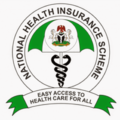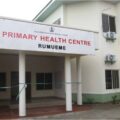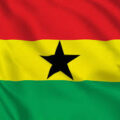Health insurance is an insurance that covers the whole or a part of the risk of a person incurring medical expenses, spreading the risk over numerous persons. By estimating the overall risk of health risk and health system expenses over the risk pool, an insurer can develop a routine finance structure, such as a monthly premium or payroll tax, to provide the money to pay for the health care benefits specified in the insurance agreement. The benefit is administered by a central organization such as a government agency, private business, or not-for-profit entity. The National Health Insurance Scheme (NHIS) in Nigeria was introduced in 2005 to ensure universal access to good health care services. NHIS provides social health insurance in Nigeria where health care services of contributors are paid from the common pool of funds contributed by the participants of the Scheme. It is a pre-payment plan where participants pay a fixed regular amount. The amount/funds are pooled, allowing the Health Maintenance Organizations (HMOs) to pay for those needing medical attention. It is primarily a risk-sharing arrangement that can improve resource mobilization and equity. It is indeed regarded as the most widely used form of health care financing worldwide.
NHIS also regulates private health Insurance operated by HMOs. Health Insurance is a social security system that guarantees the provision of needed health services to persons on the payment of token contributions at regular intervals. The 10 advantages of national health insurance scheme are;
Risk sharing
The National Health Insurance Scheme (NHIS) in Nigeria is a risk-sharing scheme that allows enrollees to equally share financial risks related to health care. In insurance matters, any increase in risk will produce a corresponding increase in health plan premiums. Similarly, the larger the degree of risk-sharing in a health financing system, the less people will have to bear the financial consequences of their own health risks, and the more they are likely to have access to needed care. Countries such as Ghana, Côte d’Ivoire, Indonesia, Iran, and Kenya have set up various health insurance schemes.
Improve resource mobilization
Financing refers to the way in which money is raised to fund health activities as well as how it is used (that is, the allocation of funds). There are five methods of financing health activities: general and earmarked taxes, social insurance, private insurance, community financing, and out-of-pocket payments. A financing strategy, which determines how these different methods are combined, is based on the amount of funds available for health care, who controls the resources, and who bears the financial burden. The National Health Insurance Scheme improves resource mobilization for health by pooling funds contributed by the participants of the Scheme into a single pool. This ensures the availability of resources for health care needs and projects. SEE: How Much Does An Appendix Surgery Cost In Nigeria
Health equity
Equity is the absence of avoidable, unfair, or remediable differences among groups of people, whether those groups are defined socially, economically, demographically or geographically, or by other means of stratification. “Health equity” or “equity in health” implies that ideally, everyone should have a fair opportunity to attain their full health potential and that no one should be disadvantaged from achieving this potential. One of the reasons that make the Scheme stand out is equity in health. The scheme does not discriminate by any means of stratification. All Nigerians and non-Nigerians enrolled in any supported schemes in Nigeria are treated equally and are subject to the same percentage premium irrespective or religion, race, or ethnicity.
Reduced Cost
One of the major advantages of the scheme is reduced cost. Health financing mechanisms in Nigeria do not operate optimally. Allocation and use of resources are neither evidence-based nor results-driven. Resources are not allocated equitably or in a manner that minimizes wastage and improves efficiency. This scheme reduces the high reliance on out-of-pocket healthcare spending as a means of financing the Nigerian health system. Out-of-pocket expenditures constitute nearly 90% of the total private health spending, placing a significant burden on households. Studies from Southeast and Southwest Nigeria show that 23% and 11% of all households sampled, respectively, experienced catastrophic payments for health care.
Protecting Families From Financial Barriers To Health Care
A big barrier to healthcare involves resources, such as financial resources. For people with high-deductible health plans or those living in countries where they need to pay for healthcare out of pocket, the issue of money is a very real one. These people may want to get treatment and may be able to access a hospital or clinic, but they will not have the means by which to pay for healthcare services. Other resource-based barriers to accessing healthcare include the inability of a clinic or hospital to gather enough supplies to deliver proper medical treatment. This is commonly the case in some developing nations like Nigeria; even if people can pay for their medical care, they simply may not have access to good healthcare. The NHIS bridge this gap by proving affordable health care in the process of protecting families from financial barriers to accessing health care.
Improved services
According to the 2009 communiqué of the Nigerian national health conference, the health care system remains weak as evidenced by lack of coordination, fragmentation of services, dearth of resources, including drug and supplies, inadequate and decaying infrastructure, inequity in resource distribution, and access to care and very deplorable quality of care. There has been a marked improvement in the health care system in the country since the introduction of the scheme.
Reduce Maternal Mortality
The World Health Organization (WHO) says the high number of maternal deaths in some parts of the world reflects inequities in access to health services and highlights the gap between rich and poor. Nearly 100% of global maternal deaths occur in developing countries with more than half of these deaths occurring in sub-Saharan Africa and almost one-third happening in South Asia. More than half of maternal deaths occur in fragile and humanitarian settings. It is estimated that over 600 000 maternal deaths and no less than 900 000 maternal near-miss cases occurred in Nigeria. Records indicate that between 2000 and 2015, the maternal mortality rate in Nigeria reduced from 1,170 deaths to 814 deaths per 100,000 live births (30.4% decrease). The target is to reduce the global maternal mortality ratio to less than 70 per 100,000 live births by 2030 based on SDG benchmark and the NHIS is leading this drive.
Benefits of National Health Insurance Scheme
Healthcare Facilities under the Scheme shall provide the following benefits package to the enrollees:
- Out-patient care, including necessary consumables as in NHIS Standard Treatment Guidelines and Referral Protocol.
- Prescribed drugs, pharmaceutical care, and diagnostic tests as contained in the NHIS Drugs List and NHIS Diagnostic Test Lists.
- Maternity (ante-natal, delivery, and post-natal) care for four pregnancies ending in live births under the NHIS for every insured enrollee in the Formal Sector Programme. Additional care if any stillbirth.
- All live births eligible to cover will be covered during the post-natal period of twelve (12) weeks from the date of delivery.
- All preterm/premature babies eligible to cover shall be covered for twelve (12) weeks from the date of delivery.
- Preventive care, including immunization, as it applies in the National Programme on Immunization, health, and family planning education. Adult Immunizations viz. HPV, Hepatitis, etc.
- Consultation with specialists, such as physicians, pediatricians, obstetricians, gynecologists, general surgeons, orthopedic surgeons, ENT surgeons, dental surgeons, radiologists, psychiatrists, ophthalmologists, physiotherapists, etc.
- Hospital care in a standard ward for a stay limited to cumulative 21 days per year following referral.
- Eye examination and care, the provision of low-priced spectacles but excluding contact lenses.
- A range of prostheses (limited to prosthesis produced in Nigeria) xi. Dental care (excluding those on the Exclusion list).
- Annual medical checkup unrelated to illness.
SEE: Private Health Insurance in Nigeria





